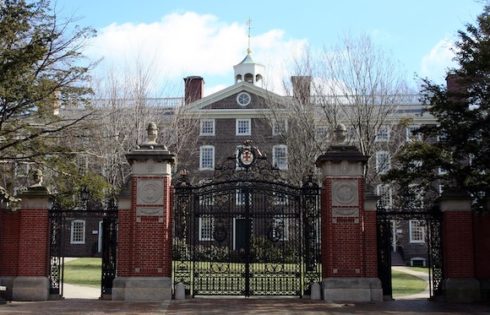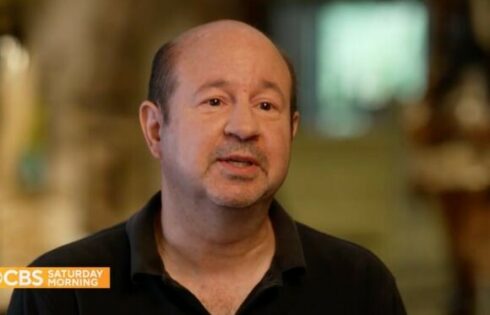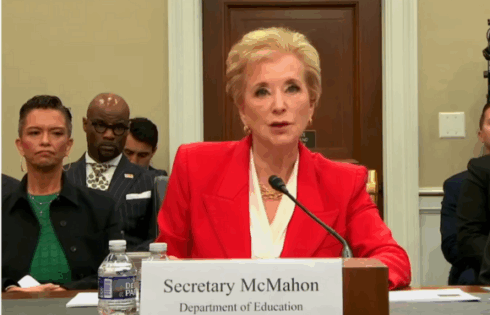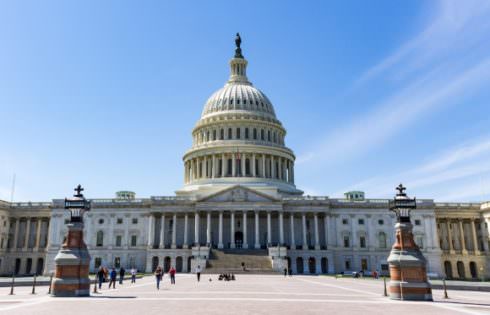
As if the policy used to eject her ‘simply emerged from the bureaucratic aether’
Arkansas State University won’t be punished for violating the constitutional rights of a student trying to create a Turning Point USA chapter, the 8th U.S. Circuit Court of Appeals ruled. But the judges put the taxpayer-funded institution on notice that officials won’t be so lucky next time.
A three-judge panel upheld a district court ruling that granted summary judgment to Arkansas State, but only because Arkansas passed legislation that bans so-called free speech zones during the litigation, mooting the central dispute.
Ashlyn Hoggard and the campus TPUSA chapter sued the university in 2017 for requiring students to get permission even before using the designated free speech zones on campus. Other areas of campus fell under more stringent restrictions and permissions depending on their intended use, and some rules were not written at all.
Administrators threatened to punish Hoggard if she didn’t leave the area outside the student union, where she was telling students about their First Amendment rights and seeking members for the nascent group. A TPUSA employee who was with her was issued a criminal trespass warning.
The plaintiffs sought damages on the theory that administrators and trustees violated Hoggard’s “clearly established” rights with ASU’s so-called tabling policy, which was unwritten. While U.S. District Judge J. Leon Holmes said her rights weren’t clearly established at the time, he called the tabling policy a “prior restraint,” making it presumptively unconstitutional.
That policy violates the First Amendment, at least as applied against Hoggard, the 8th Circuit found. Restricting the “Union Patio” to registered student organizations, which did not include the nascent TPUSA chapter, “has no rational relationship” to the university’s “profferred justification” for the rule – that the patio is the “living room of campus.”
The Alliance Defending Freedom, which represented the plaintiffs in court, praised the ruling even though it upheld qualified immunity for all officials.
By affirming the university violated Hoggard’s rights, “the court ensured that the law is clearly established going forward,” meaning officials will be held personally liable for taking similar actions in the future, the law firm said.
Needed to protect against ‘pushy buskers, hucksters, and pamphleteers’?
While the 8th Circuit limited its analysis to whether Hoggard and TPUSA could collect damages from ASU trustees and officials including Chancellor Kelly Damphousse, it frowned on the policies that the lawsuit challenged before Arkansas updated the law.
The flagship Jonesboro campus, where Hoggard was tabling, had its own ironically named “Freedom of Expression Policy” that limited freedom of expression to designated zones that still required advance permission. It also had an unwritten tabling policy that limits use of the patio outside the Student Union to registered student organizations.
The application form for registration says “only registered student organizations and University departments can use certain tables inside the Union” but is silent on restrictions on the outside patio, the 8th Circuit said: “It is unclear whether the average Arkansas State student even knew about this unwritten Tabling Policy.”
MORE: ASU sued for banning students from talking about First Amendment rights
The Union Patio is a “limited designated public forum,” meaning its speech restrictions must be “reasonable” and “viewpoint neutral,” the appeals court said. It is definitely “status-based” by virtue of its restriction to recognized student groups, but not discriminatory against Hoggard’s viewpoint.
The question is whether Hoggard’s tabling activities can be banned in order to keep the patio “comfortable” for students, as the 8th Circuit paraphrased the university’s argument: a place where students “need not worry about whether they’ll be harassed by pushy buskers, hucksters, and pamphleteers.”
This explanation doesn’t fly, given that Hoggard is a student who has “presumably paid the Student Union Fees supporting maintenance of the Student Union and aspects of the registered student organization program,” the appeals court said.
University conditions her rights on ‘offensiveness’ of her speech
The judges were not impressed by Arkansas State’s inconsistent and contradictory explanation of what activities were permitted in the Union Patio.
“As an initial matter, nobody seems to know where the Tabling Policy came from; it’s as if it simply emerged from the bureaucratic aether,” the opinion said:
The deposition testimony is loaded with murky questions and murkier answers. Can two students sitting at a Union Patio table talk to other students passing by? According to one defendant, it depends on whether their speech is “offensive.” Could a student group — officially recognized or otherwise — approach other students outside the Union Patio to talk politics? Apparently, it “depends” on whether the University receives complaints.
The 8th Circuit “reasonably infer[s]” that Hoggard’s rights under the policy depended on the offensiveness of her speech and how administrators “chose to enforce the unwritten and ambiguous aspects of the various policies at play.”
MORE: Arkansas expands First Amendment protections for students in state law
It’s not enough that Hoggard could have simply “approached individual students practically anywhere on campus to discuss” her views, as the First Amendment already protects, or could have gone to a free speech zone, which is a “presumptively-unconstitutional prior restraint on speech,” the court ruled.
Arkansas State doesn’t even say in writing how long in advance a student must request permission to use such a zone, and the 8th Circuit has only upheld prior restraints “when a non-student’s speech, crowd control, and safety concerns were at issue” – none apply here.
“There may be good reasons for distinguishing between registered student organizations and other members of the university community for purposes of accessing a particular university forum,” the ruling said: “But such reasons have not been presented in this case.”
Hoggard’s lawyers took credit for Arkansas’s law that “forced the university to change its unconstitutional policies,” but noted that her “First Amendment freedoms had never been vindicated until now.”
New Arkansas law mooted ‘bigger fish to fry’?
The university got a break when it came to whether it should have known its actions were unconstitutional.
The 8th Circuit previously upheld “several complained-of speech restrictions imposed in an unlimited public forum” in a case known as Bowman, though it involved a “non-student” and speech restrictions that were “justified by compelling safety and administrative concerns.”
Nonetheless, it was reasonable for Arkansas State officials to think that Bowman covered the unwritten tabling policy because it “regulated a more loosely-scrutinized limited public forum and did not directly involve a prior restraint.
The core problem with the tabling policy’s constitutionality is its “unjustified distinction between registered student organizations and other students, not from the way officials exercised their discretion by enforcing it against Hoggard,” the 8th Circuit said.
Judge James Loken published a concurrence that expressed bewilderment with the other two judges for not requiring Hoggard to prove that each defendant’s unconstitutional action caused her legal injury.
MORE: Judge calls ASU policy a ‘prior restraint’
Hoggard’s beef was with “Sarah Ponder and Elizabeth Rouse, mid-level University administrators” who enforced the tabling policy yet were not named in her lawsuit:
In the modern university, it is all too common for petits fonctionnaires, arbitrarily enforcing broad rules and policies, to take action that may be politically correct but is not viewpoint neutral. When such actions trample a student’s constitutionally protected right of free speech, those responsible should be held accountable.
Loken speculated that the Alliance Defending Freedom left out Ponder and Rouse because it saw “bigger fish to fry” in a “facial attack on multiple University policies.” The Arkansas Legislature and governor ruined this “cause célèbre” by passing the FORUM Act, which mooted the main issue.
In order to keep their suit alive, the plaintiffs had to accuse trustees and top administrators of personally orchestrating “a single episode in which their underlings applied an unwritten Tabling Policy” against one student.
Loken questioned whether the tabling policy even existed: The evidence suggests it “may have been an ad hoc creation of Ponder and Rouse to further their personal notions of what student speech was appropriate for the ‘living room of campus.'”
MORE: School district violates Arkansas law by censoring embarrassing articles
IMAGE: everything possible / Shutterstock.com
Like The College Fix on Facebook / Follow us on Twitter






Please join the conversation about our stories on Facebook, Twitter, Instagram, Reddit, MeWe, Rumble, Gab, Minds and Gettr.